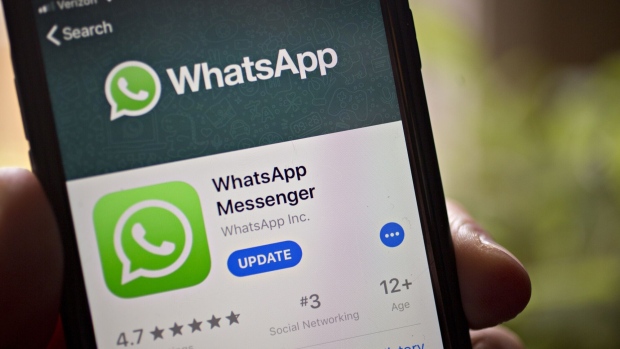Apr 18, 2024
Apple Asked to Scrub WhatsApp From China App Store, WSJ Says
, Bloomberg News

(Bloomberg) -- Apple Inc. removed social media services including Meta Platforms Inc.’s WhatsApp and Threads from its Chinese app store, responding to orders from Beijing to close more loopholes in the country’s longstanding internet firewall.
The iPhone maker also removed the messaging services Telegram and Signal, according to consultants tracking the space. Apple, which has consistently complied with one of the world’s most rigid internet censorship regimes, said the Cyberspace Administration of China ordered the apps removed over national security concerns.
The orders come on the heels of a cleanup program Chinese regulators initiated in 2023 that was expected to remove many defunct or unregistered apps from domestic iOS and Android stores, including local ones. In August, China asked all mobile app developers to register with the government by the end of March, or cease operating.
Beijing has barred the use of foreign messaging and social media platforms like WhatsApp for years, using what the industry calls the Great Firewall. That’s helped apps like Tencent Holdings Ltd.’s WeChat dominate domestic usage, though Chinese users can still employ virtual private networks to view foreign media.
Less sensitive apps with more substantial Chinese businesses such as Duolingo are expected to comply with the latest regulatory licensing regime to remain operational, said Rich Bishop, co-founder and chief executive officer of AppInChina.
“It will mean that Chinese consumers are pretty much limited to just Chinese apps, with a small number of international ones,” said Bishop, whose consultancy has received dozens of inquiries from companies about how to stay compliant and publish software in China. “That’s quite a big change — so it will further cut off Chinese citizens from the rest of the world in a sense.”
The action against the American tech services comes as the US government is taking steps toward a ban on TikTok, the hit video app from Beijing-based ByteDance Ltd. US politicians have also cited national security concerns in their push to force the company to either sell TikTok to a non-Chinese owner or face a ban in the US market.
Read More: TikTok Faces Washington Reckoning as Divest-or-Ban Vote Nears
“We are obligated to follow the laws in the countries where we operate, even when we disagree. The Cyberspace Administration of China ordered the removal of these apps from the China storefront based on their national security concerns,” Apple said in a statement. “These apps remain available for download on all other storefronts where they appear.”
The app registration process kicked off last year in what Beijing painted as a bid to counter telephone scams and fraud. The Ministry of Industry and Information Technology said that it would carry out supervision work on those filings from April to June, and to take action against unregistered apps. Developers would also be required to set up and improve mechanisms to handle “illegal information.”
The MIIT move was regarded as another step by Beijing to tighten controls across its cyberspace, forcing internet companies to scrub information considered politically sensitive. Beyond apps, websites and large language AI models have also been subject to greater content curbs.
Read More: Microsoft Blacklist of Political Subjects on Bing in China Grows
The Wall Street Journal was first to report the app removal. A Meta spokesperson referred Bloomberg News to Apple’s statement. Representatives for Telegram and Signal didn’t respond to requests for comment.
China’s action comes as TikTok divestiture legislation is expected to be included in a fast-moving aid package for Ukraine and Israel that Congress is expected to vote on this Saturday.
China is a key nation for the iPhone, its largest consumer market outside the US and its primary production base. Chief Executive Officer Tim Cook visited the country earlier this year and emphasized its importance to his business. Apple has long said that it needs to follow local laws as part of operating its app store effectively in different countries.
--With assistance from Kurt Wagner.
(Updates with Telegram and Signal from the second paragraph)
©2024 Bloomberg L.P.





